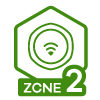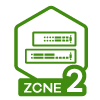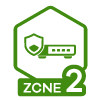Exported config file – SSID security keys re visible, not hashed!
Options
All Replies
-
Hi Ikarus,
After communication through the private message, the not hashed user password on the switch configuration file is because you select "clear text" when creating a user account, and through afterwards confirmation, once the password is set "Encrypted", the user password is hashed in the configuration file, so don't worry about this.
Best Regards,
Richard0
Categories
- All Categories
- 442 Beta Program
- 2.9K Nebula
- 219 Nebula Ideas
- 127 Nebula Status and Incidents
- 6.5K Security
- 588 USG FLEX H Series
- 344 Security Ideas
- 1.7K Switch
- 84 Switch Ideas
- 1.4K Wireless
- 52 Wireless Ideas
- 7K Consumer Product
- 298 Service & License
- 477 News and Release
- 91 Security Advisories
- 31 Education Center
- 10 [Campaign] Zyxel Network Detective
- 4.8K FAQ
- 34 Documents
- 87 About Community
- 105 Security Highlight
 Zyxel Employee
Zyxel Employee




